Profile
La Serra Sant Pere de Ribes
La Serra Sant Pere de Ribes is a nursery and primary school for children aged 3 to 12.
We are committed to research for pedagogical renewal and innovation and offer an educational proposal based on interdisciplinarity.
We are at Finca la Serra in the Rural Environment of Sant Pere de Ribes
La Serra Sant Pere de Ribes Educational Philosophy
The inputs of information coming from all over the world to which today’s society is subjected do not necessarily mean or bring more knowledge. In our opinion, what this life circumstance does require, on a personal and social level, is the necessary preparation to be able to understand, choose, assimilate and know how to process this information.
One of our pedagogical objectives is to promote educational actions in this area, offering tools and companionship to learn critical discrimination and the corresponding ordering of this information. This in turn influences the creation of concepts and knowledge that develops people who are appropriately critical and discerining in this information society, which is itself in continuous transformation.
Living education is a pedagogical practice that aims to ensure that children’s learning processes are developed respecting the principle of autonomy and research, self-regulation, the need for movement and play and the need for bonding and belonging .
A clear summary would be that our main educational objective is to encourage the child to become an active agent and player in his own learning process, in an environment and learning spaces prepared to facilitate free movement
Free Movement at La Serra
The idea of free movement in the school, through the different learning spaces, is one of our distinguishing features, both for the kindergarten and primary school stages.
This idea is conditioned by the situations in which the child must respect the general timetables established at school, and the rules for coexistence with peers and adults, as well as the rules and limits in relation to the space he inhabits and explores and the material he uses and must take care of.
From the primary school stage, children begin to combine this freedom with the responsibilities they choose and acquire in relation to their learning. This structure is included in a personalized schedule that each child prepares at the beginning of the school year, with their tutor/guardian, which is modified according to their interests and commitments.
Learning
In our school, we promote useful learning and knowledge. This sustains itself over time and takes root in a soil cultivated by curiosity, choice, research, concentration, desire and imagination. This is the result of a security and understanding that in turn facilitates the living of the experiences chosen and shared, so that children see a relationship and a continuity in their learning process in their life, in and beyond school.
Both in the kindergarten and primary school stages, we start from meaningful learning, which is why we take into account and respect the previously integrated learning, with which each child arrives at school. Another of our main pedagogical and educational objectives is to promote the child’s autonomy and self-regulation, understanding them as a necessary process that facilitates an individual and own way of thinking, deciding and acting.
In this deployment of learning, we accompany the children so that they participate and become fully involved, also, in the process of self-evaluation. Developing this competence is essential to become more autonomous and grow in cognitive maturity.
The learning itinerary is recorded throughout the course in a specific type of internal documentation. This information is obtained and organized with the child, throughout the course, with the support and accompaniment of the tutor and the family, through individual tutorials.
The learning spaces
The learning spaces are organized so that they become facilitators and promoters of different learning. They are also designed and prepared with a diversity of open, structured and unstructured materials and with different types of proposals. This is in order to facilitate research and independent learning so that children’s interests and needs can be responded to, taking into account and respecting the different learning rates and the different stages.
These spaces are flexible, they change and are modified, transformed and updated permanently, in order to adapt them to the educational and pedagogical requirements of the moment. They are also prepared to cover the needs of movement, relaxation, intimacy, individual work and work in small and large groups.
Research and the different learning activities take place in outdoor and indoor spaces, both in the nursery and primary school spaces. In the nearest exterior, the children have spaces for unstructured or semi-structured free play, spaces for play: in groups, to share breakfast, etc. Inside, the spaces have been structured in such a way as to respond to the children’s learning needs, in line with our guiding philosophy and our internal curriculum.
At the school, the following spaces are currently prepared for the children:
- Communication space
- Mathematical space
- Space of knowledge of the world
Space for theatre, music and movement - Workshop
- Carpentry Space
- Library
- Space for creativity and artistic expression
- The exterior
- the laboratory
- Reception area
Relationships and the environment
At the school we strive to cultivate and weave an environment that favours an interesting and nourishing relational exchange between the team, children and families, considering our school as a reliable, close and socializing space for children.
The care and support of the relational and social development of the group of children is another of the strong points of the project, in the field of learning.
Relational and social development promotes that children can build bonds, close and secure relationships with peers and adults, and that they can experience, regulate and express emotions and feelings by exploring the environment and learning in the context of the family, of school and community. .
We foster a climate of safety, respect and trust where children can express and share their opinions and emotions and see conflicts as opportunities to analyze ways of expressing their own interests and needs, emphasizing self-respect and respect for others.
We also look after and accompany very closely the period of attachment and adaptation of the child to school. In this sense, the involvement of the family is fundamental and essential, all the time this process lasts.
The human team
The school was born, develops and progresses thanks to the motivation, contributions and involvement of the entire human team that holds it together and makes it grow.
We are a working group: consumer partners-(families) and working partners-(pedagogical team) and volunteer collaborators, who move forward together, day by day, so that the school’s ideology becomes concrete in practice.
With excitement, drive, strength, patience, confidence and with great intensity we live and share this educational experience together. Each of us occupies an important place in this large working group that strives moment by moment to improve, stabilize and consolidate the project.

The teaching team
The core pedagogical team focuses on accompanying the children’s learning processes. This ensures that rhythms are respected in relation to self-regulation and autonomy, and facilitates a more experiential and personal learning in any area, within the framework of a living, respectful and transformative education.
The members of the management team, each within the framework of their functions, are responsible for the creation and implementation of the center’s pedagogical and educational project, guaranteeing and preserving its implementation and application
The families
Families are a fundamental pillar for the development of the project. They participate in the pedagogical project by offering their support and knowledge to share with the children and are fully involved with their effort and participation to sustain the structure. Without this intense work and complete coordination, with the management and teaching team of the school, the project would not be sustainable.

Educational meetings
Pedagogical meetings are times when families and teams meet. They allow information related to the operation of the school or specific pedagogical issues and doubts to be shared. Pedagogical meetings are held together: infants and primary.

Educational offer
The Espai Obert La Serra school is a small educational community that hosts the infant and primary stages, with a general cohort of around 120 children.
CHILDREN’S COMMUNITY
Second cycle children’s education: P3, P4 and P5.
Children from 3 to 6 years. With capacity for 30 places.
MIDDLE AND SENIOR COMMUNITY
Primary education: initial cycle, middle cycle and upper cycle.
Children from 6 to 12 years. With capacity for 90 places.
Since the 2015-16 academic year, our school has been recognized by the Department of Education of the Generalitat de Catalunya. We are one of the first free schools in Catalonia legally authorized for infant and primary education. You can consult the resolution here

Rolling Enrollment
The rolling enrollment method offers the possibility of being able to register for enrollment at the school at any time during the school year , regardless of the established enrollment period.
If there are no places at the time of your request, you can remain registered on the corresponding waiting list and we will contact you as soon as there is a place.
Places are awarded in strict accordance with the order of the waiting list, taking into account the current needs of the school.
For more on this and for inquiries related to fees, you must contact the school secretary.
Telephone service hours from Monday to Friday from 9 am to 1 pm on 938 964 488
You can also send your request to secretaria@espaiobertlaserra.org and we will answer you as soon as possible.
Map
Sorry, no records were found. Please adjust your search criteria and try again.
Sorry, unable to load the Maps API.
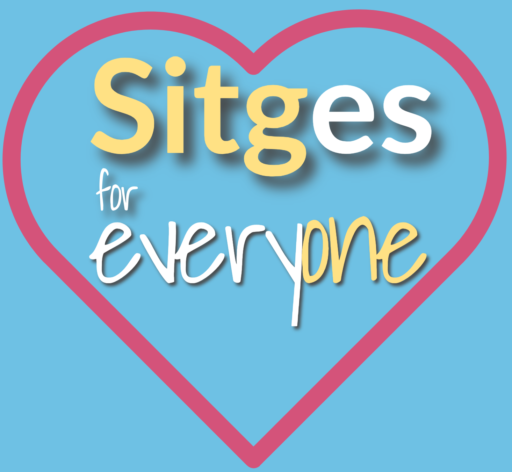
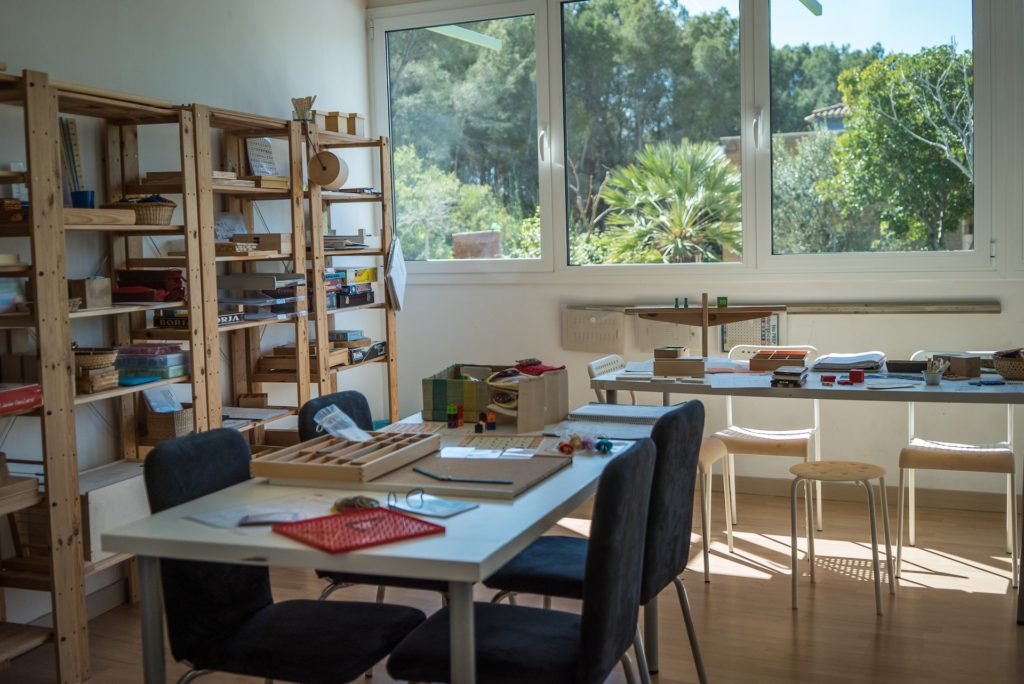


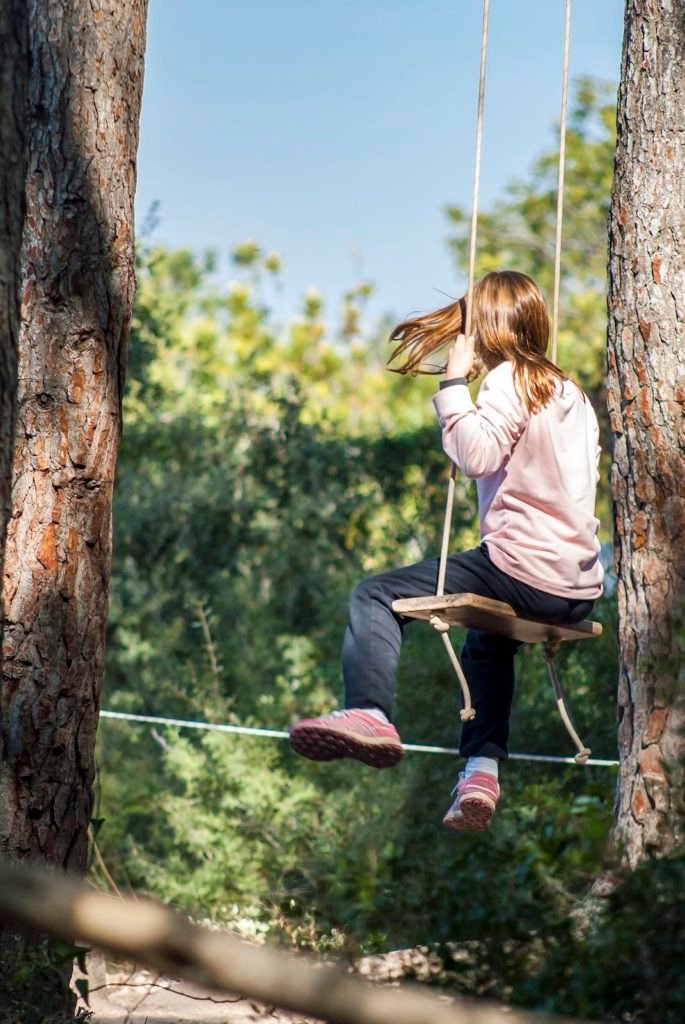
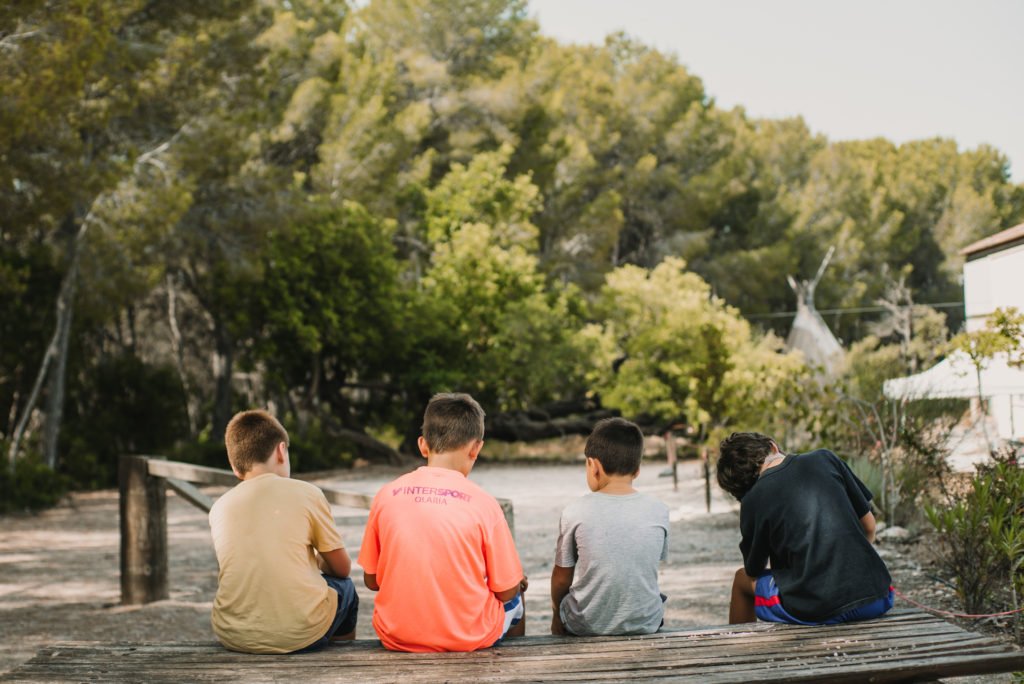

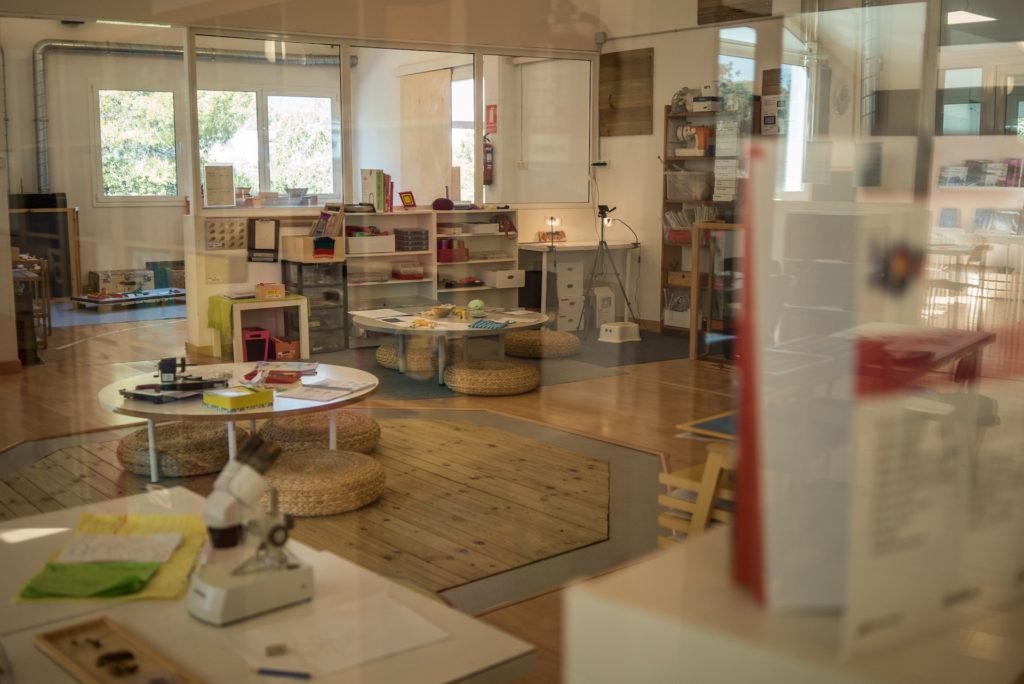
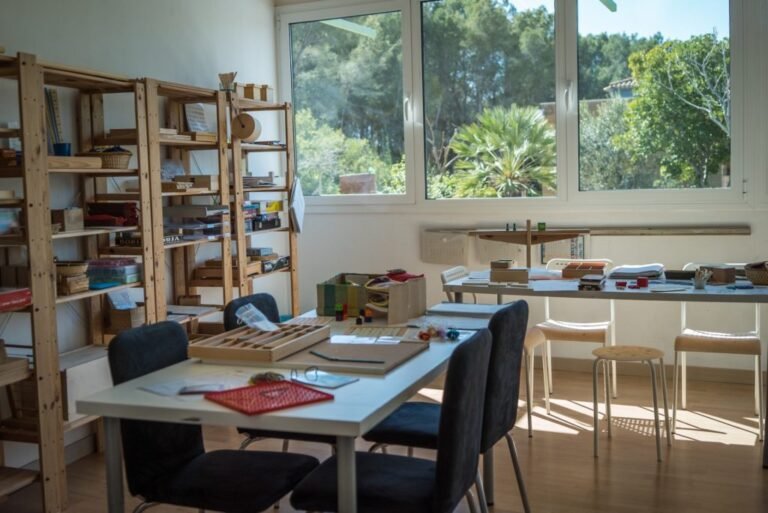
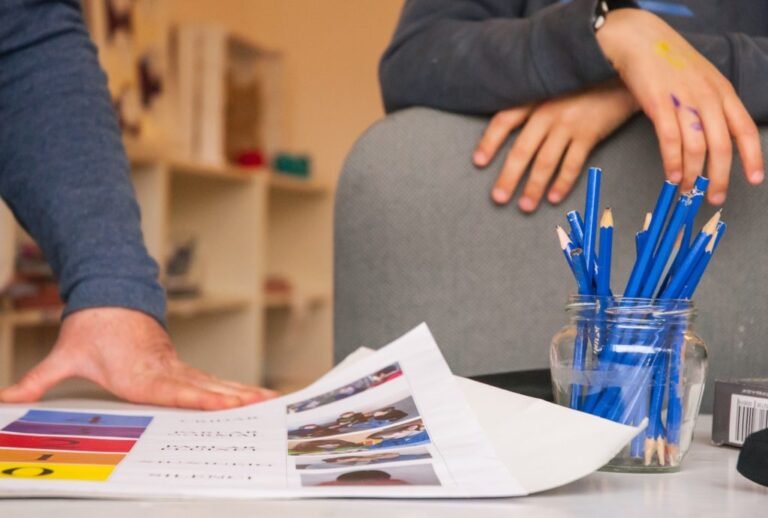
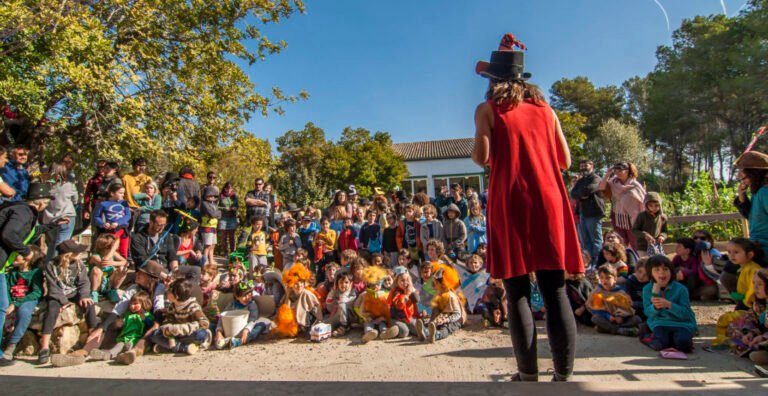
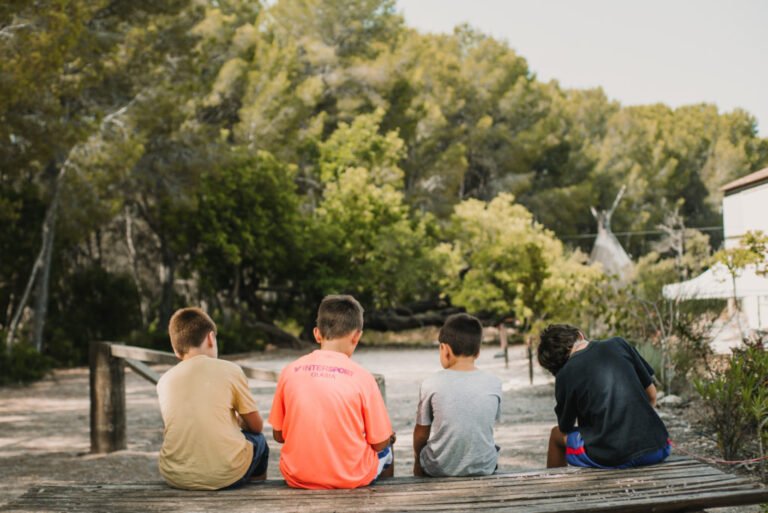
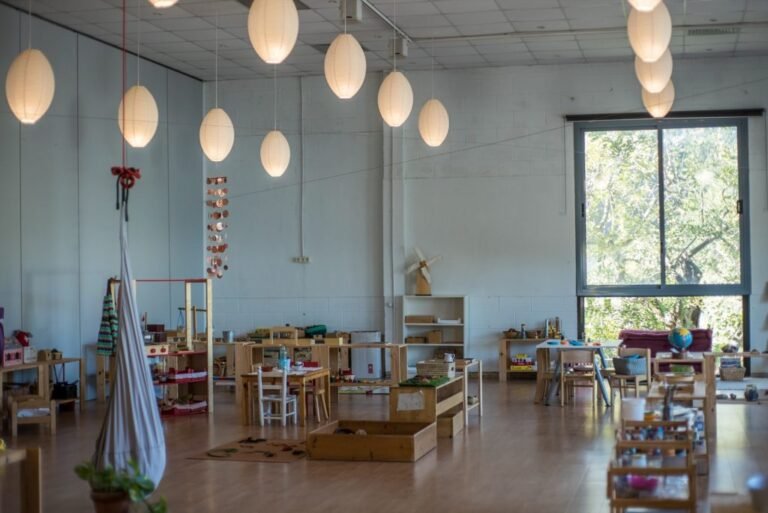
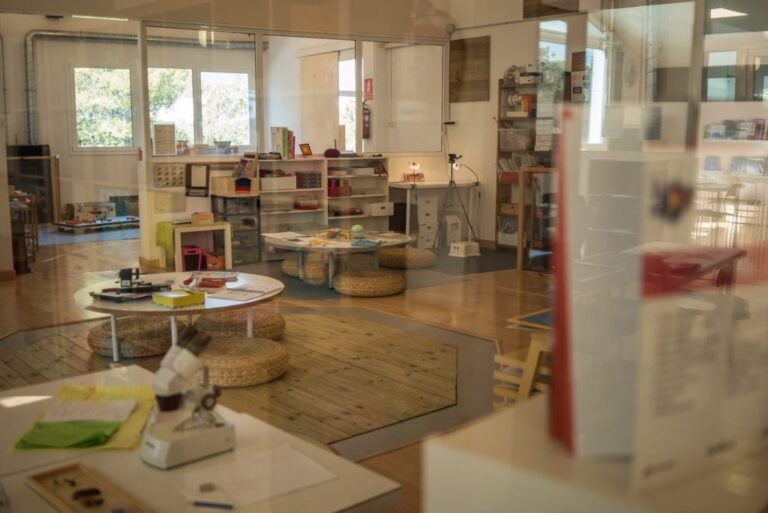
3 Reviews on “La Serra Sant Pere de Ribes- An Official and Unique Free School”
This school is truly unique. We researched a lot of schools all over Cataluña and moved to Sant Pere de Ribes especially for La Serra. Our daughter started in P4 two years ago and is now in the first year of Primary. She is thriving and we are so happy and grateful to have found this magical place. The pedagogy of Educación Viva is child-focused, respectful and gives children strong ownership of their learning. They graduate as emotionally and intellectually intelligent humans who are intrinsically motivated. I cannot compare it to my private school education in London which essentially just taught us to pass exams and left us with very few life skills and a completely extrinsic sense of motivation. If I could go back in time and send myself to La Serra instead I would!!
We moved from the States 3 years ago with 0 Spanish or Catalan knowledge. Our older son started at La Serra right away, and is graduating the Primaria this year. The little one has been at La Serra for 2 years and is currently in Infantil. This is the kind of school that we the parents wish we’d attended back in the day. The instruction is basically on an individual level, mostly independent- and team project-based work. There is no homework and no grades. There are group and private tutorias (parent-teacher meetings)to learn about what and how the kids are learning, and, of course, we can always chat with the teachers informally as well.
A big component of life at La Serra is social-emotional learning, with a 15-minute group “check-in” session every day, and a school-wide assembly every week. Kids are taught how to resolve conflicts and are empowered to make decisions about their school life. There’s a very warm community of parents that has welcomed us with open arms, and for all of the above reasons, our children had no problems integrating into life in Spain. I’d say that by now probably about a third of the families at school are from international backgrounds. There’s now an English-speaking assistant in both Infantil and Primaria.
The teachers are very involved and loving (and patient, I have to say), and any setbacks that the kids had in terms of behavior or other issues (not making it to the potty on time or not being able to do something independently) were dealt with in a respectful, warm, and developmentally-appropriate manner.
Children have a lot of opportunities to do what they love and explore their talents, to play outside in the numerous shaded areas and the forest (the forest activities are our favorite), breathe the sweet pine air and get all their wiggles out. As a result, I have a tough time getting them out of school every single day.
It seems like it’s all fun and games, and yet somehow they manage to also do some serious learning. This year the 6th graders are taking the Catalonia-wide test, for which they’ve been preparing since the beginning of the year by doing past years’ tests for practice. Our 12 year old now averages about 70% in Spanish and Catalan (not bad for 2 years with no additional language lessons outside of school), and is acing math. Everyone can see the areas where they might need to catch up in order to successfully move up to the Secondary grades (we all wish that La Serra had the Secondary stage).
The school is run as a non-profit cooperative, with all except the curriculum and instruction components managed by the families. Therefore there’s no corporate profit margin, and the fees are lower than at the private schools. However, a certain level of commitment to support the school functions is required. You can help out organizing school parties, working on small building or grounds upkeep and improvements, watching the little ones during the aftercare hours (currently the aftercare is available until 16:30), or organizing after-school activities. On the plus side, as a member of a cooperative, every family has the right to vote on the many school decisions, from which afterschool activities to offer to the financial management and staffing aspects.
Over the past weekend the school celebrated its 10th anniversary, totally organized by the 6th and 3rd grade students to help them pay for their year-end class trips. My American child was a presenter for a part of the magic show, speaking perfect Spanish and Catalan, played bass guitar, sang a solo and auctioned off his wooden sculpture that he’s been working on this year). Judging by how many students from the past years have showed up, we’re not the only ones with the warm and fuzzy feelings about the school :).
I am happy that we have the opportunity to give our kids the chance for magical childhood experiences and not the conveyor-belt kind of education.
The school i would have liked to attend as a child and that i know is a gift for my son. To grow and develop surrounded by nature and with educators that respect childhood. Meaningful learning experiences that will last into adulthood.